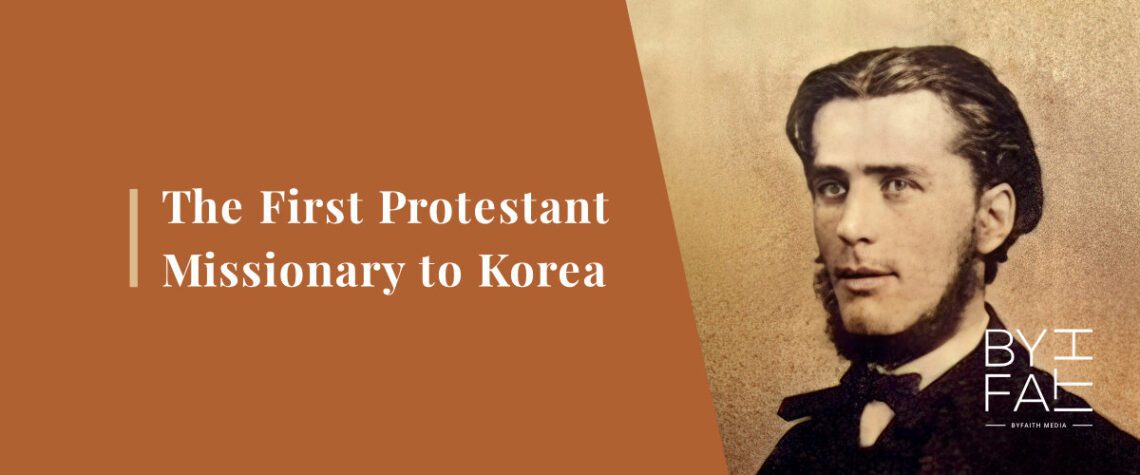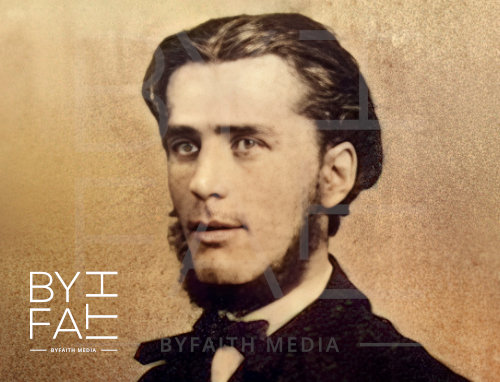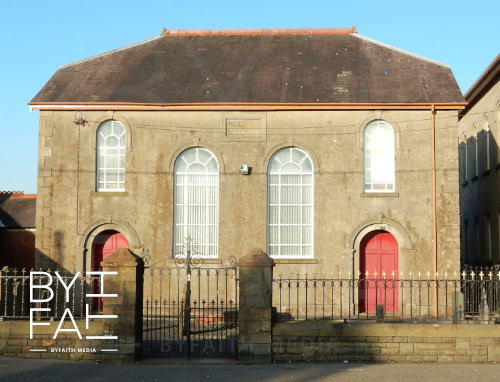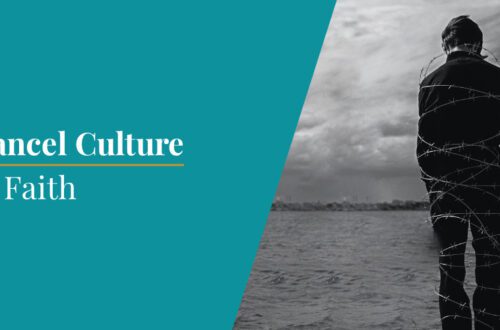
The First Protestant Missionary to Korea
Robert Jermain Thomas was born in Rhayader, South Wales (UK) in September 1840. His dad was a minister in Hanover Church in Llanover near Abergavenny from 1848-1884. At age fifteen Thomas was made a member of the church and soon began to preach. On 4 June 1863, he was ordained at Hanover Church to be a missionary with the London Missionary Society. By this time Thomas had mastered nearly all the European languages and had studied medicine for eighteen months under Dr. Waterman and spent five years at London University. Four weeks later, Thomas and his young bride Caroline embarked for China at Gravesend, England and during the first week of December they arrived at Shanghai, China.
Sadly, after four months Caroline Thomas died. Due to stress and deep grief Robert Jermain Thomas resigned from the Mission Society. He went to Peking (now Beijing) and became a lecturer in English and Chinese. In 1865, Thomas met two Korean traders who told him there were about 50,000 Catholic converts instructed by eleven priests and met in houses. Korea at this time was the Hermit Kingdom and had no contact with outsiders. These traders had crosses and rosaries but no Bibles, so he offered to go back to Korea with them, taking Chinese Scriptures. To be able to go he became an agent for the National Bible Society of Scotland and paid for his travelling expenses.
For God did not send His Son into the world to condemn the world, but that the world through Him might be saved. He who believes in Him is not condemned; but he who does not believe is condemned already, because he has not believed in the name of the only begotten Son of God.
– John 3:17-18
On 4 September 1865, Robert Jermain Thomas went to Korea from Chefoo, China and he quickly picked up the language. Thomas was heavily disguised and those he sold Bibles risked being decapitated if discovered. Thomas wrote: ‘They (Koreans) were very hostile to foreigners but by a little chat in their own language I could persuade them to accept a book or two.’ He left after four months.

Many Koreans visited Robert Jermain Thomas on the ship and received the Bible. In 1866 there was a serious uprising in Korea and many Roman Catholic converts were massacred as well as some priests. The French dispatched an admiral as nine French priests had been murdered. The admiral looked for an interpreter and Thomas was employed. On a particular stop, supplies were brought on board and the admiral sailed on leaving Thomas behind. Thomas then got employment as a translator on an armed American merchant marine schooner called the General Sherman.
They sailed up the river to Pyongyang (North Korea’s present capital) in August 1866 but were warned to leave as Korea did not want foreign trade. However, the captain opened fire much to Thomas’ horror. The chief of police Lee Hyon Ik boarded the vessel and was kidnapped and his official seal was taken. Only after seeing the Governor would the chief be released and this was relayed in a letter written in Chinese by Thomas from orders of the captain. The boat continued to sail upriver while angry crowds lined the shore demanding the chief’s release.
The army was called out, and they fired cannons against the General Sherman. By this time the ship had floated onto a sandbank as the tide receded. Fire rafts were sent towards the General Sherman and caught alight. Robert Jermain Thomas opened his case of Bibles and began to throw them to those who lined the shore while shouting, “Jesus, Jesus.” Whang Myong Dae, a twenty-year-old, witnessed this act. He was so impressed with Thomas that he later embraced Jesus becoming a founding member of a church near Pyongyang. In his 80s, Whang attended services at the Jo-wang-ri church (Dae-dong-gun) near Dae-dong-gang.
Robert Jermain Thomas with his clothes on fire leapt overboard with his few remaining Bibles, swam and waded to the bank and frantically gave out the Bibles until he was captured and taken before the Governor. All twenty-four crew members and the owner of the ship W. B. Preston were executed. Thomas humbly knelt and begged the executioner to accept the last red Bible from him. Thomas shut his eyes and prayed, the executioner hesitated but had to do his duty. Robert Jermain Thomas was beheaded at only twenty-seven years of age. Some accounts stated that Thomas was knifed through the heart and that most of the crew were beaten to death by the angry mob. Korea did not notify the U.S. of the incident. In 1871 the U.S. Navy sailed to China and then Korea to investigate the disappearance of the General Sherman.
After many weeks the executioner of Robert Jermain Thomas was greatly troubled in his mind. He had picked up the Bible and taken it home with him. The soldier was full of regret and remorse as Thomas’ martyrdom made a deep impression on his mind. After many weeks Thomas’ body with the rest of his companions was buried on the island of Sook Syum. A few days after the execution an edict was issued threatening the arrest of any person who was found in possession of such books (the Bible). Many were thrown away but some people gathered them up and the pages were used as wallpaper. After time curiosity arose and the texts were read which were on the walls of people’s homes and as the Holy Spirit gave revelation, the Koreans gradually came to believe in Jesus as their personal Lord and Saviour. In time a Presbyterian congregation was formed.
Most assuredly, I say to you, he who hears My Word and believes in Him who sent Me has everlasting life and shall not come into judgment, but has passed from death into life
– John 5:24
In June 1871, a U.S. Naval force attacked and captured five Korean forts to punish the ‘natives for depredations on Americans,’ particularly for murdering the crew of General Sherman, burning the schooner, and for later firing on other American ‘small boats taking soundings up the Salee River.’ As the years passed, Christianity grew in Korea and the Church was impacted by other movements worldwide, such as the Welsh Revival.

The 1904-1905 Welsh Revival broke out in the school room of Moriah Chapel, Loughor, South Wales (UK) on 31 October 1904. It swept through the valleys and sparked off revivals in parts of India as well as other places. Word came to Pyongyang and the Koreans were hungry for some of the fire, so a week of fasting and prayer was set aside for the church in Pyongyang. The church wanted God to come and touch their community but nothing happened! Then a church elder publicly confessed that he had been misusing money that had been entrusted into his care. An outpouring of public repentance began, and many people queued until the following morning to confess sin. The revival had begun.
A policeman confessed that he had come to spy, a woman confessed adultery and her husband publicly forgave her. Eventually, an old man went to the front and confessed that he had been the one who had killed Thomas, nearly 40 years before. This old man’s son eventually became an elder of the Presbyterian Church in Korea and the revival began to spread to other churches.
In 1932 near the site where Thomas Jermain Robert had been martyred, in Pyongyang (now the capital of North Korea) the Thomas Memorial Church was erected at the place of his martyrdom by Korean Christians.
Missionary work was the grand purpose of his (Rev. Robert Jermain Thomas) life. He made every labour subservient to this noble end. To act as an interpreter to the French expedition was only subordinate to higher purposes, or else he would not have left Chefoo in a merchant vessel instead of staying for the expedition. The fact is he wanted to go to Korea by some means in order to perfect his knowledge in the language, so as to be able translate the Scriptures into that language, and establish a Protestant Mission in that dark land.
– The Mission Year Book of this British Congregational Church for 1868
The church that sent Rev. Robert Jermain Thomas, Hanover in Llanover is still there today, it is a small chapel. I visited it in 2001. There were a few pictures of Rev. Thomas on the chapel walls and other interesting information to see.
Many Koreans still come and visit the church to see where the great missionary came from. In 2001 a Korean Choir visited South Wales (UK) to honour the land to which they owe so much and presented the chapel with a beautiful vase. I saw the choir in concert in Cardiff and they were superb. They performed a drama in traditional Korean costume.
Be watchful in all things, endure afflictions, do the work of an evangelist, fulfil your ministry
– 2 Timothy 4:5
By Mathew Backholer. Find more about Mathew’s books here.







